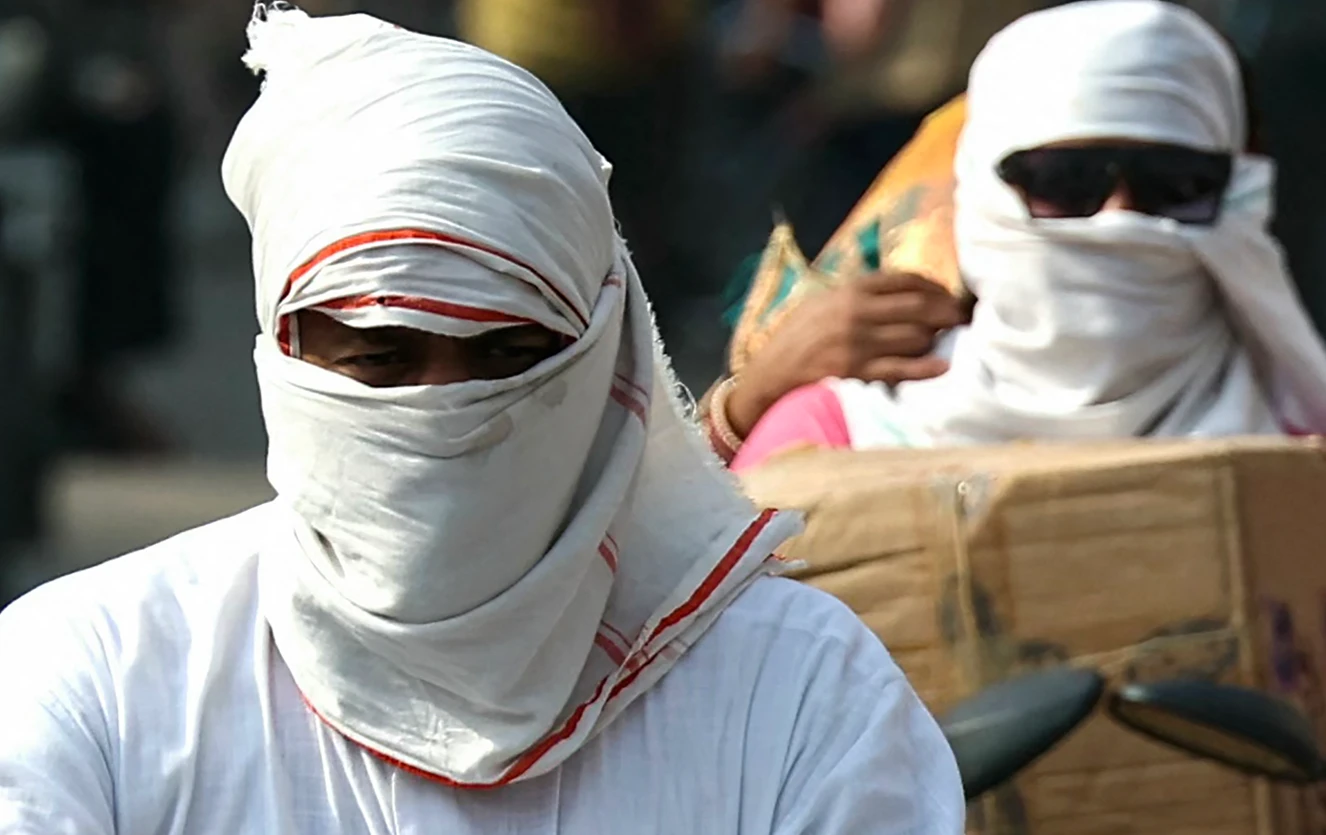Power demand peaks in heatwave-hit Delhi, but temperature readings may be 'error'

Stay tuned with 24 News HD Android App

Power usage in India's capital surged to a record high Wednesday as residents of the sprawling megacity struggled to keep cool during a crushing heatwave with temperatures sizzling above 45 degrees Celsius (over 113 Fahrenheit).
But India's government-run weather bureau said a station reading showing a potentially record-breaking temperature in the capital may have been due to an "error" in the measuring equipment.
As people sought relief from the scorching temperatures, the electricity grid groaned under a record peak power demand of 8,302 megawatts, according to official data.
India is no stranger to searing summer temperatures but years of scientific research have found climate change is causing heatwaves to become longer, more frequent and more intense.
The India Meteorological Department (IMD), which reported "severe heat-wave conditions", this week issued a red alert health notice for Delhi, which has an estimated population of more than 30 million people.
The alert warns there is a "very high likelihood of developing heat illness and heat stroke in all ages", with "extreme care needed for vulnerable people".
Delhi city authorities on Wednesday warned of dire water shortages and ordered teams to clamp down on wastage. But the weather bureau also said it had sent a team to investigate a staggeringly high reading at an automatic weather station.
"Mungeshpur reported 52.9 degrees Celsius (127.2 Fahrenheit) as an outlier compared to other stations," the IMD said in a statement, referring to a station in a Delhi suburb.
"It could be due to error in the sensor or the local factor." The bureau's multiple other sites recorded a maximum temperature over Delhi on Wednesday that "varied from 45.2C to 49.1C", the statement added. IMD meteorologist Soma Sen Roy told AFP that officers were "checking out" whether the station had recorded it correctly.
On Tuesday, two Delhi stations, at Mungeshpur, as well as at another automatic station at Narela, posted readings of 49.9 degrees Celsius.
The IMD said only its manned stations "should be considered to find out trends and extremes". In 2022, Delhi temperatures were recorded to have hit 49.2C.
In 2016, 51C was recorded in Phalodi on the edge of Rajasthan's Thar Desert, the highest confirmed temperature in India. "Temperature over urban areas varies from place to place," the bureau added, saying variations could be due to factors such as the "proximity to water bodies, barren land", parks or dense housing.
People on the streets of Delhi said there was little they could to do avoid the heat.

"Everyone wants to stay indoors," said snack-seller Roop Ram, 57, adding he struggled to sell his savoury fritters.
Ram, who lives with his wife and two sons in a cramped house, said they had a small fan but that did little to cool them down.
They were counting down until the rainy season arrives in July. "I am not sure what else we can do to cope," he said. "We are just waiting for the monsoon."
Rani, 60, who uses only one name, travels by bus for two hours each morning to sell jewellery to tourists at a makeshift street stall. "It is definitely hotter, but there is nothing we can do about it," she said, gulping water from a bottle she brought from home.
"I try to refill the bottle from anyone around." New Delhi authorities have also warned of the risk of water shortages as the capital swelters in headache-inducing heat. Delhi Water Minister Atishi, who only uses one name, said supplies had been halved in many areas to boost flow to "water-deficient areas".
Atishi on Wednesday ordered state authorities to "immediately deploy 200 teams" to crack down on construction sites or commercial properties using domestic pipes to stem a "serious wastage of water". Delhi relies almost entirely on water from neighbouring Haryana and Uttar Pradesh, both farming states with huge water demands. The highly polluted Yamuna river, a tributary of the Ganges, runs through Delhi but its flow is hugely reduced during the summer months.
